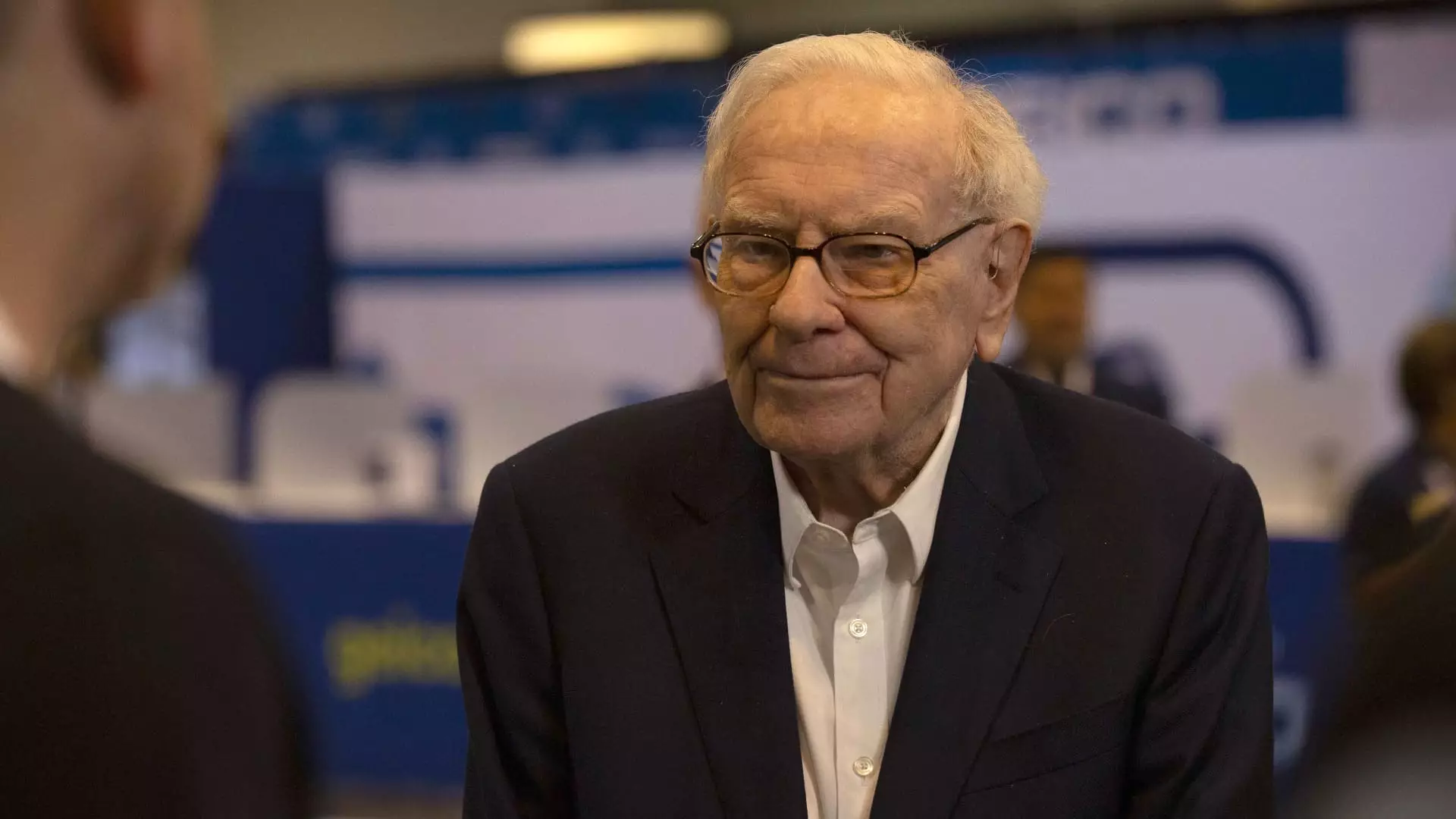Warren Buffett, a name synonymous with investing acumen and stoic confidence, is facing an unsettling dilemma as reports circulate about Berkshire Hathaway’s possible exit from the real estate brokerage market. After years of strategic acquisitions and a stronghold in various sectors, the notion that Buffett might be wavering on one of his investments becomes particularly significant. It indicates a broader challenge within an industry increasingly scarred by adversity—low sales, a squeezing inventory, and persistently high prices. This potential sell-off isn’t merely a reflection of market forces but speaks volumes about a shift in Buffett’s once-unshakeable optimism.
The Compass Connection: A Potential Purchase
News broke recently that Compass, a powerhouse in the real estate tech space, is in advanced talks to take over Berkshire’s HomeServices of America. While HomeServices’ CEO Gino Blefari promptly denied any plans for sale, the negotiations suggest deeper struggles within the brokerage—a once-thriving segment that Buffett seemed to trust implicitly. Buffett has always embodied the ideal of “buy and hold,” hence an exploration of a sale might signal that his steadfastness is being tested. Famous for his insightful longsightedness, if Buffett—often referred to as the Oracle of Omaha—begins to see the landscape as more perilous than promising, it’s time for investors and stakeholders to sit up and take notice.
The Decline of an Empire
Buffett’s shrewd business sense has allowed him to navigate and sometimes dominate industries that appeared invincible. However, his history with the newspaper industry is a cautionary tale that looms large over this possible real estate pivot. His bold moves in acquiring newspaper franchises in the 1970s gradually transitioned to a painful acknowledgment of their decline in the early 2000s. As ad revenue dwindled and a digital age emerged, Buffett’s optimistic outlook morphed into one of harsh reality; eventually, he sold off his newspaper holdings. Has the familiar fear of obsolescence now crept into the real estate brokerage realm?
The signs are troubling. For all intents and purposes, HomeServices not only contributes a negligible slice of Berkshire’s vast revenue pie but has also suffered staggering losses in recent years. With a net deficit of $113 million in 2024—following a string of profitability in prior years—one cannot ignore how swiftly fortunes can shift. If Buffett has drawn a parallel to this grim trajectory, it raises a haunting question: what remains of the once-promising allure of real estate?
Litigation and Economic Factors Collide
As if the market’s inherent challenges were not enough to navigate, Berkshire Hathaway and HomeServices are contending with a myriad of legal hurdles that further cloud the picture. The $250 million settlement concerning inflated brokerage commissions echoes an unmistakable crisis in confidence cascading throughout the sector. When you combine this with constraints like soaring mortgage rates and fewer available listings, it creates a student-loan level of chaos for potential buyers—making the dream of homeownership seem further away than ever.
The unfortunate reality for HomeServices, and the broader real estate market, is that potential homeowners are stifled by a trifecta of higher costs, low supply, and the threat of ongoing regulations. The result: pending home sales plummeted to their lowest levels since record-keeping began in 2001, a fact that further casts shadows over an already opaque industry.
This impending decision for Berkshire Hathaway, whether to retain or divest its stake in HomeServices, will undoubtedly ripple through the market. Traditionalists may argue an exit signals defeat, while others might view it as a tactical retreat in an era when standing stagnant can mean your doom. Regardless, it’s a sobering reminder that even titans like Buffett are not immune to the whims of an ever-shifting market. Real estate, which has long been viewed as the bedrock of American wealth, now sits precariously on the edge of uncertainty—and Buffett’s unease should serve as a clarion call to both investors and everyday Americans alike.

